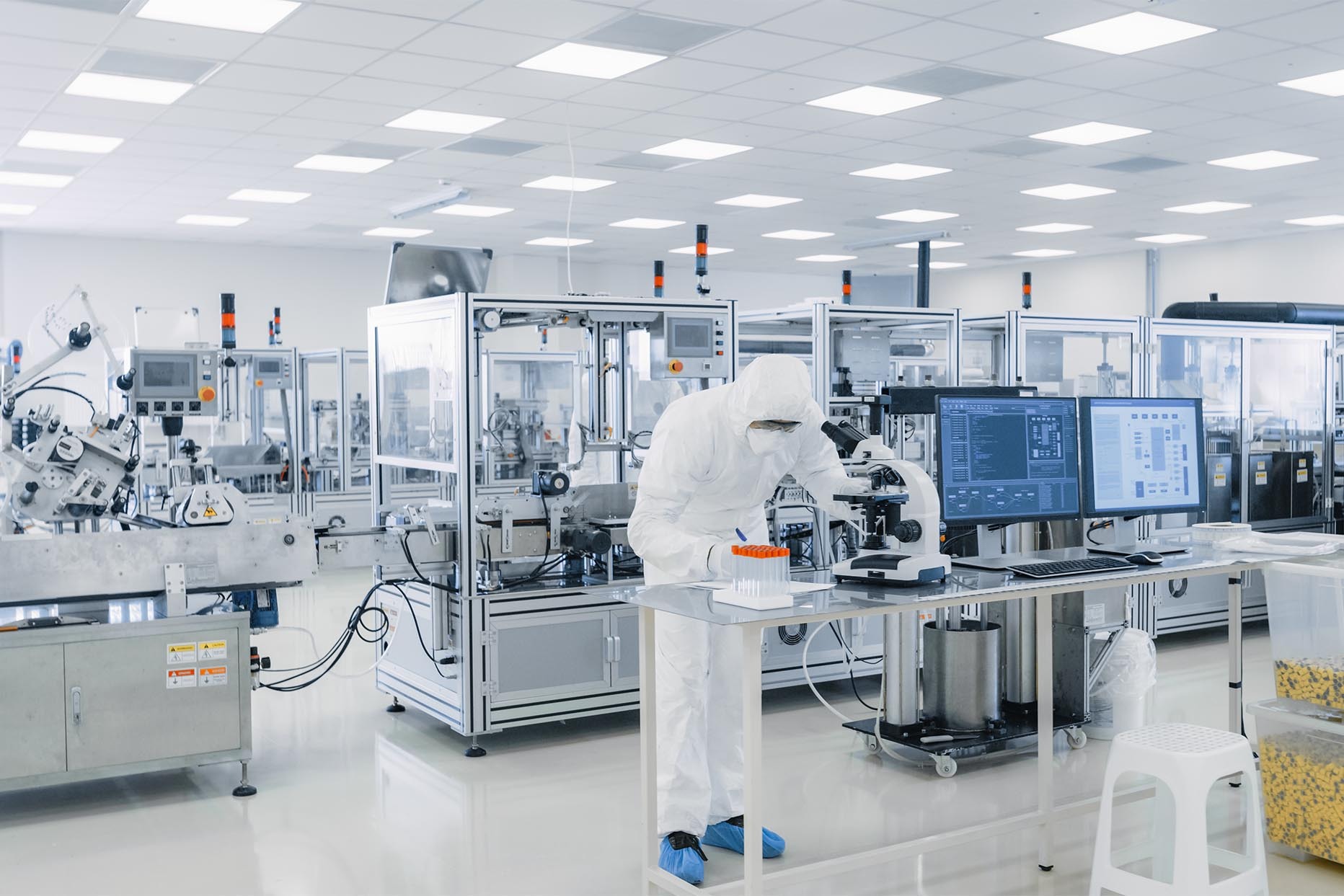Emergency back-up solution for RTO in the pharma industry
When a manufacturer of air purification systems was let down by a sub-contractor, it faced the enormous challenge of getting its client’s pharmaceutical plant up and running in just a few days. In this emergency situation, we were able to supply filters that met the pharma client’s complex requirements with just four days’ notice.
The problem
Late one Thursday evening in spring 2020, DESOTEC's emergency line received an after-hours call from a German manufacturer of air purification systems.
The company was installing a Regenerative Thermal Oxidiser (RTO) at a pharma factory in Switzerland but had been let down by the supplier of an essential component.
It was crucial that the manufacturer met the Monday deadline so the pharma company could start production immediately: the cost of any delay would run into thousands of Euros per day. Furthermore, the process of safely shutting down and restarting a pharmaceutical plant is hugely complex, so to be avoided if at all feasible.
The plant produces Multiple-Unit Pellet Systems for modified drug release. Production involves the use of solvents, so emissions from the factory must be treated before they can be safely discharged into the atmosphere.
The factory emits 8 000 m³/h of air, with a solvent concentration of 8 gC/m³. Permitted VOC limits are just 20 mgC/m³, so a reduction of more than 99% is required.
Activated carbon is rarely used in situations where there are not only high concentrations of contaminants but also high flow rates and continuous production, as the filters will become saturated quickly and are therefore not cost-effective. However, unscheduled downtime can cost companies far more.
The complexity of the situation was compounded by the fact that customs paperwork is required for Switzerland, and that Europe was under Covid-19 lockdown.
However, lockdown also worked in DESOTEC's favour: we had already accelerated our move to digital ways of working and were accustomed to handling issues via Microsoft Teams and WhatsApp rather than face-to-face.
Within 24 hours of video calls and logistics planning, we at DESOTEC were confident that we could fulfill the requirements.
The manufacturer had contacted around 12 companies, of which just a handful responded. We were the only one able to offer a solution that met all requirements.

The solution
DESOTEC designed a set-up based around three of its AIRCON H filter units. Two would be placed in series: the first would remove the bulk of the pollutants, while the second would polish the treated air flow. The third unit was a back-up.
As we did not know how long our set-up would be required, and as it was important to the customer to be able to operate smoothly, we also supplied several back-up filters. Due to the high concentrations of pollutants involved, these would need to be changed every day.
Since the non-functioning RTO was already in place, DESOTEC's filters had to be sited further away.
This meant we needed to obtain a large supply of flexible piping at short notice.
We also required an extraction fan to bypass the original set-up. As the high concentration of solvents poses an explosion risk, all equipment at the site must comply with strict controls such as the EU’s ATEX directives. One of our contacts in the Netherlands rented us a suitable fan.
Our experience of working in Switzerland meant we were able to handle the customs paperwork smoothly, and the filters and related components arrived at the factory on schedule.
One of DESOTEC's most experienced engineers had driven the 700 km to Switzerland, and was on site ready to connect up the system for production to start as planned at 8 pm.
The results
The end client was relieved to know it could start production on schedule and continue its operations 24/7 without any problems.
In fact, the RTO was up and running more quickly than expected, so DESOTEC helped the client further by taking back all unused filters.
We are now working with the pharma company to establish if our activated carbon filtration solutions could be part of its business continuity planning at its other sites. RTOs are so established in the pharma industry that they are rarely questioned, but activated carbon could be a viable contingency plan when something does go wrong.
DESOTEC promises a 24/7 emergency service, and we really mean it. We always have a member of the senior management team on duty, ready for urgent calls at any time of the day or night.
As our technology is mobile, it can be installed swiftly. Activated carbon starts adsorbing contaminants immediately without any preparation required, making it suitable for urgent situations.
DESOTEC has the experience to handle complex technological and bureaucratic requirements, including arranging permits to transport waste safely back to our furnaces in Belgium for destruction. The fact that all contaminated carbon is transported in sealed units is reassuring for clients and border officials alike.
At the DESOTEC site in Belgium, the saturated carbon is recycled in one of the reactivation furnaces so it can be reused. This is preceded by careful sampling and analysis. The state-of-the-art flue gas treatment ensures that all contamination is completely destroyed.
Contact our experts
To discuss an urgent situation with DESOTEC, call our engineers at any time.
Contact our expertsContact our experts
To discuss an urgent situation with DESOTEC, call our engineers at any time.
Contact our experts-
Air & gas purification
Our sustainable filtration solutions ensure air purification, odour control, and high quality process gases such as biogas and biomethane. -
Our unique service
Our closed-loop, full-service model is as unique as your business needs. We’ll define the right filtration setup and safely recycle filtration waste, making it easy to go green. -
Your sustainability journey
We care about protecting our air, water and soil for future generations, just like you. Our filtration solutions help you meet environmental standards, reducing your carbon footprint.


